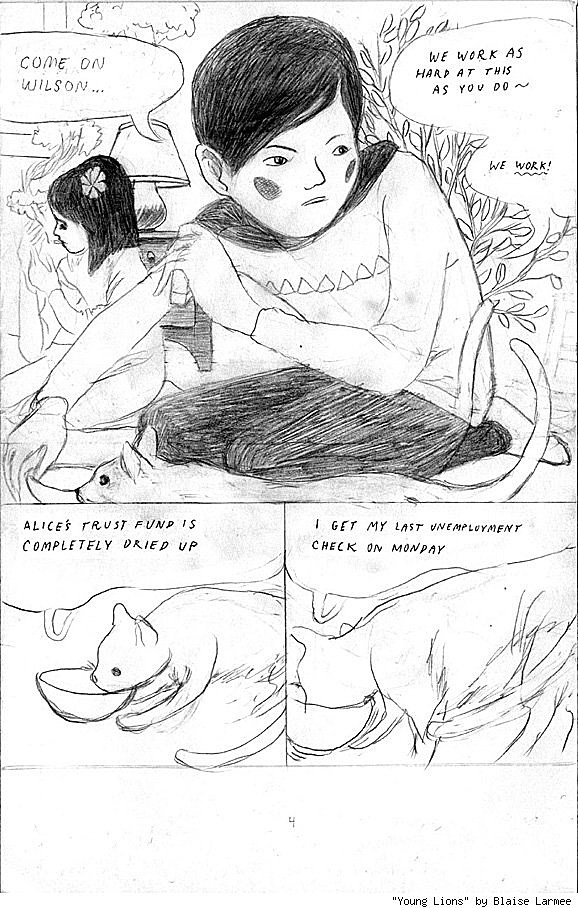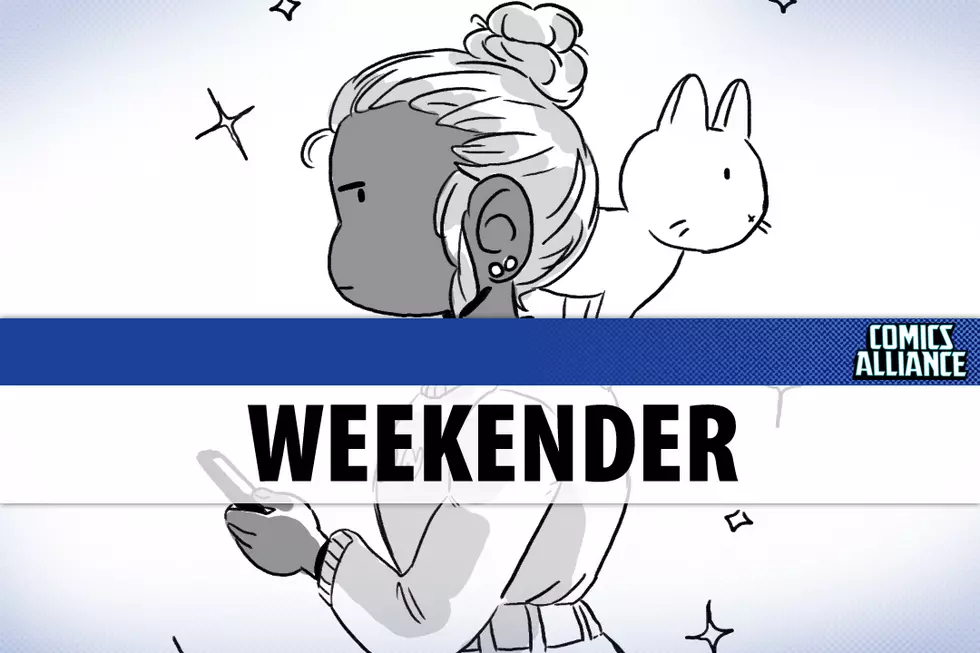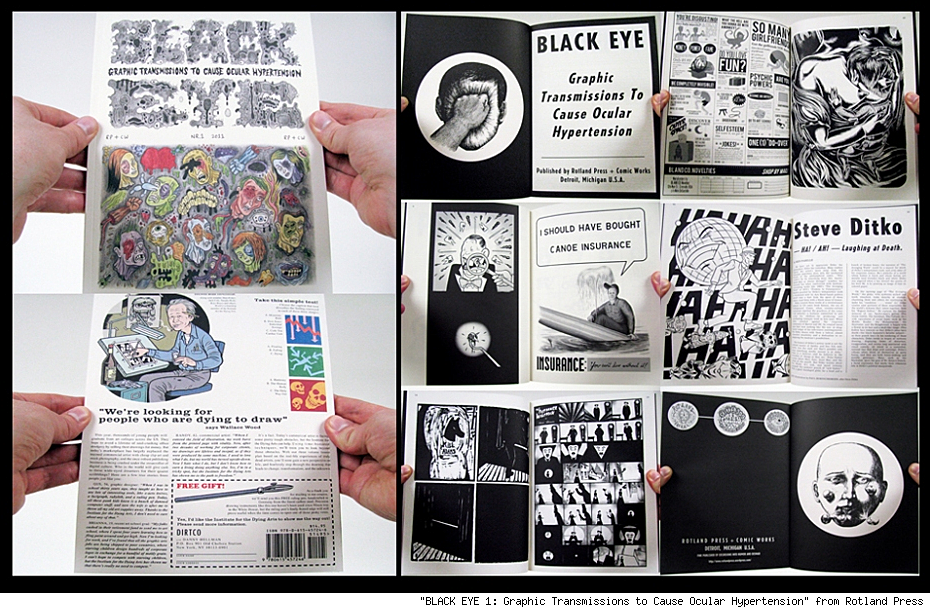
Indie Comics Seized by Customs Agents at U.S.-Canada Border

Agents of the Canadian Border Services confiscated last weekend a number of independently produced comic books en route to the Toronto Comic Arts Festival. Copies of the graphic novella Young Lions by Blaise Larmee and an anthology called Black Eye 1: Graphic Transmissions to Cause Ocular Hypertension were seized from artist Tom Neely and small press publisher Dylan Williams at the border in Buffalo, New York, and if Canada's Prohibited Importations Unit deems the material obscene, the comics will be destroyed.Published by Rotland Press as part of a crowd-sourced Kickstarer fundraising project, Black Eye is an anthology of what Canadian magazine Quill & Quire characterizes as "dark humor" that contains "sexual and violent imagery." Contributor Tom Neely was transporting five copies to TCAF as a favor to Rotland Press Publisher Ryan Standfest. Neely's traveling companion Dylan Williams is the publisher of Sparkplug Comic Books, which produces Young Lions, a Xeric-winning graphic novella that includes scenes of a sexual nature featuring characters who appear quite young but are meant to be adults.

According to Neeley, when a Canadian custom agent inspected Young Lions, he secured reinforcements and proceeded to search "every inch the car."
The officer said, 'I understand this is art - I can't make a judgment if this is obscene or not, but this looks like something that we shouldn't be allowing into the country," says Neely.
Canadian law is such that customs officers can confiscate materials deemed suspicious under criteria outlined in the Canadian Criminal Code, but whether a book, video or other artifact is in fact "criminal" is left up to the Prohibited Importations Unit.
Toronto book retailer TCAF co-founder Peter Birkemoe of The Beguiling told Quill & Quire that Neely and Williams' seizure is the first of its kind since the festival launched in 2003, but the Comic Book Legal Defense Fund, the U.S.'s leading non-profit advocate for comics professionals' with emphasis on freedom of speech issues (remember Alan Moore's Lost Girls problem?), published an advisory that suggests this sort of thing is happening with increasing frequency.
In one recent incident, an individual was detained at the U.S.-Canada border while en route to an anime/manga convention. He was handcuffed and held briefly on charges of child pornography, and his materials seized. Such tactics, focusing on expressive materials that are presumptively protected by the United States Constitution, are even more troubling to the extent border searches are not limited to hard copies of materials in a traveler's possession. Customs agents also may search for information stored on electronic devices, including cameras, laptop computers, cell phones or other storage devices, or on electronic media, such as flash drives or DVDs. Such searches may be conducted at random, with or without reasonable suspicion, and are becoming increasingly common.
Reports of this type are consistent with information CBLDF has received about examinations of comic book art in connection with border searches. Customs agents frequently use an overly broad and inaccurate definition of "child pornography" in order to justify intrusive searches of materials that are fully protected by the United States Constitution. Under U.S. law "child pornography" is the record and product of child sexual abuse, and as the Supreme Court stated in a 2002 case, "[t]he sexual abuse of a child is a most serious crime and an act repugnant to the moral instincts of a decent people." However, the depiction of such child abuse in the form of "child pornography" can only involve real children – cartoons of fictionalized characters cannot be subjected to "child abuse." In such cases, the Court noted, "there is no underlying crime at all."
Nevertheless, CBLDF has gotten reports that travelers have been detained and their computers and expressive materials seized after customs agents found comic art that contained no depictions of actual children and no representations of sexual activity. Any 7 photographic or artistic rendering that depicts nudity may heighten the risk of a search, even if the depiction has nothing to do with child pornography.
For his part, Rotland Press publisher Ryan Standfest, also a Detroit-based art teacher, seems pragmatic in the face of the incident. This year's TCAF would have been his company's first appearance at the popular show, but, as he told Quill & Quire, "...because of the confiscation, more word has gotten out about the book than I imagined."
[Via ICv2]
More From ComicsAlliance










